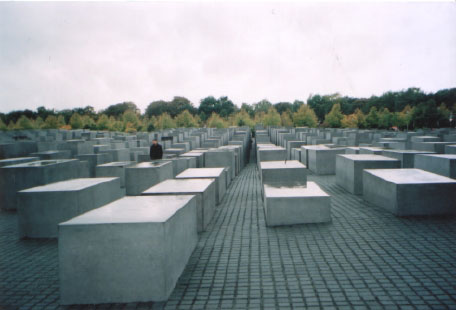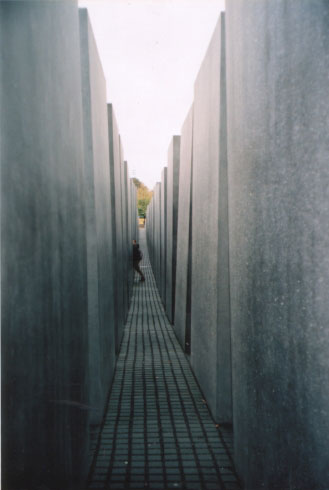I'll be blunt: Germany has never been one of my favorite countries.
From a respectful distance, I have marveled at its geniuses in
literature, music, art, philosophy and science. But every visit there
brought me face to face with its graceless traditions and sullen
temperament: The rowdy beer halls and surly waiters became, for me,
symbols of the Teutonic character.
And on top of that -- German militarism and the ghastly Nazi legacy.
The last time I was in Germany was over New Year's Eve 1989, in
Berlin. The wall had just fallen six weeks earlier, and I was on a
television assignment to interview Germans East and West about the
prospect of reunification. We were at the Brandenburg Gate at midnight,
and fireworks exploded for nearly an hour. Thousands of people were
cheering and carousing, with champagne and beer, while hundreds of others
crawled back and forth through breaches in the wall, in sheer joy. Since
that night, Germany has been a question mark in my mind. It was time to
go back.
Three days were not enough to reacquaint myself with Berlin. But
even if I'd stayed longer, I would have seen little that looked familiar.
The Brandenburg Gate and the Reichstag, of course, are immutable. The
Kaiser-Wilhelm Memorial church still stands in its shattered bombed-out
state, a deliberate and grim reminder of the war. But elsewhere, all over
the city, there are new and astonishing buildings, and dazzling new
embassies. (The new U.S. embassy, under construction, is a sorry
exception: a bland block of a structure imperiously close to the Reichstag
and the Holocaust Memorial. Why?)
But I'd say that the biggest change is in the people themselves. We
are now three generations removed from World War Two. Only people over 65
would have any memory of that. Today there are Euros, not Deutschmarks;
there are coffee shops, not biergartens. Nearly everyone speaks at least
a few words of English: taxi drivers, shopkeepers, waitresses. They are
polite and smiling. They seem to be free of their horrible past,
unhaunted by their history.
And yet I, as a stranger, am acutely aware of the damage this nation
wreaked upon itself, and the death and destruction it brought to millions
of others. I wonder how any nation can completely heal such wounds, or
ever fully atone. And more puzzling still: How could it ever have
happened?
I think the Holocaust Memorial -- that stunning, numbing field of
2,700 slabs of dark concrete -- may explain the process. It begins with
small, low slabs that you can easily climb on or jump over. Gradually,
the slabs increase in size, gathering mass and momentum, tilting on the
uneven terrain, until you find yourself trapped in a grid of high,
insurmountable megaliths.
And that is exactly how evil often begins -- casually,
insignificantly. You pay little attention to it, or accept the stealthy
progression until it grows to overpower you. Then there is no escape.
This is what happened in Germany from 1933 onwards, as seemingly
simple rules aimed at the Jewish population were expanded step by step
into discriminatory laws, and then unmitigated persecution, and finally
segregation and deportation and death.
Could it happen in other "civilized" countries? I'm afraid so. Like
the frog that is dropped in a pot of cold water and is gradually boiled to
death, we adjust all too easily to furtive escalation, we excuse all too
quickly the underhand maneuver. In America, we are allowing our civil
rights to be chipped away, we have fallen for blatant government lies, and
we continue to listen to the drivel of our media. It would not take much
to find a target now for our anger and frustration: The immigrants, the
gays, the people on welfare, the liberals, the Jews.
In the dark, underground Holocaust Museum there is a quotation from
Primo Levi, the Italian writer who survived Auschwitz:
"It happened before, therefore it can happen again: this is the core
of what we have to say."
It is a sobering thought, and a warning for our time.

